Around and About with Richard McCarthy: ‘Give it 120%’: Stories from the life of a TV producer turned Death Doula
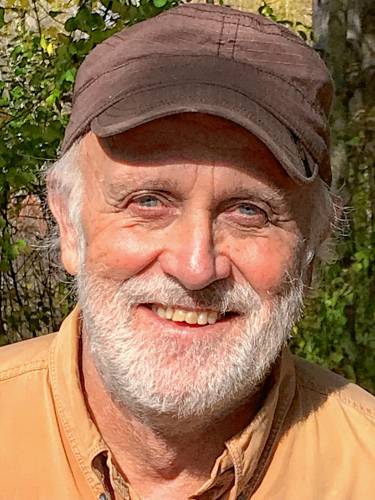
| Published: 03-14-2025 10:40 AM |
Nan Bernstein lives in Tyringham, a town in the Berkshires, 29 miles west of the Gazette offices as the crow flies. She grew up in York, Pennsylvania, in the 1950s and ‘60s. Her grandfather was a tailor and her father owned and operated a small clothing factory.
Nan went off to college at Boston University. She graduated with a degree in Liberal Studies, and began what she thought would be a career in social work. Her first job out of college was at an agency providing supportive services for people getting out of jails and prisons.
After that, Nan worked in an acupuncturist’s office for awhile, but began thinking she wanted to get into a different work than “the helping professions.” She moved to Manhattan (nowadays it would be to Brooklyn) to live with her sister.
Nan decided to seek work in the “entertainment industry,” as she puts it. She got out the Manhattan Yellow Pages (remember, this was in the 1970s), checked out the listing of film production companies, and decided she wanted to work for United Artists. She called United Artists and kept calling. One day she got a callback from them about a job opening as a receptionist, which she snapped up.
When mail came to United Artists at that time, it was dumped on the reception desk, and those for whom it was intended would have to leave their offices to get their mail. This was before fax, email, texting, and other digital messaging were common procedures, so postal mail loomed a lot larger for business communication. Looking for ways to keep busy and useful at work, Nan decided she had the time amid her receptionist duties to deliver the mail to each office.
At this point, the reader might be thinking, as I initially was, that such seeking to make oneself useful was a classic tactic of those seeking to rise in the entertainment world, or for that matter, any industry. But Nan says she never “curated a career,” but rather her attitude about work was, and is, “Give it 120% and never feel put upon to do any aspect of it.”
Starting with her receptionist job, Nan traveled a road to publicist, production secretary, production coordinator, location manager, production manager, and, finally, producer.
At the zenith of her career she produced 76 episodes of “Friday Night Lights,” which is on most lists as one of the top television series of all time. For her efforts, she was nominated for a Prime Time Emmy Award. Of “Friday Night Lights,” she has said, “It’s not just about football … it was about so many other things.” The Writer’s Guild of America agrees with her, because they voted it the 22nd best written TV series of all time.
Article continues after...
Yesterday's Most Read Articles
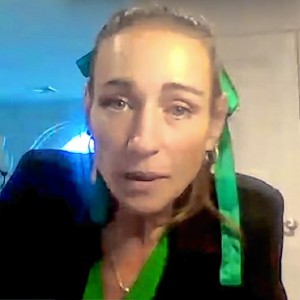 Northampton Housing Authority boss placed on leave
Northampton Housing Authority boss placed on leave
 NCAA Div. 1 Men’s Ice Hockey: UMass stuns Minnesota 5-4 in OT, advances to regional final
NCAA Div. 1 Men’s Ice Hockey: UMass stuns Minnesota 5-4 in OT, advances to regional final
 UMass Men’s Basketball: Three Minutemen enter transfer portal
UMass Men’s Basketball: Three Minutemen enter transfer portal
 Easthampton schools adopt $22.8M budget with no layoffs; enrollment decline, student needs a concern
Easthampton schools adopt $22.8M budget with no layoffs; enrollment decline, student needs a concern
 Area property deed transfers, March 28
Area property deed transfers, March 28
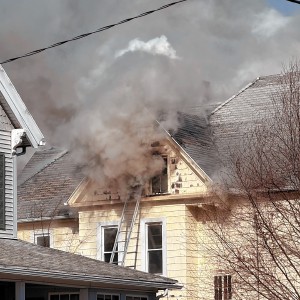 Fire ravages Lincoln Street home in Holyoke
Fire ravages Lincoln Street home in Holyoke
She also produced 13 episodes of the television series “The Leftovers,” 13 episodes of the television series “Prime Suspect,” and worked on a number of movies, including “The Family Man,” “Conspiracy Theory,” and “Michael Collins.”
Although she isn’t given to give the dish about celebrities (“believe me, they’re just people”), she worked with quite a few during her career. One amusing anecdote she did volunteer was that back when she worked at United Artists as a receptionist, a discombobulated young man walked up to her desk and said he had an appointment. She was convinced he was a messenger and directed him to wait in the lobby. He kept insisting he had an appointment. Although she doubted this, she finally checked, and he did indeed have one. The young man’s name was Woody Allen.
I asked her which celebrity she worked with was her favorite as a person. She answered, without much hesitation, “Johnny Cash.” When I asked her why, she said, “He had tremendous pain, but tremendous humanity.”
I’ll backtrack to say that in 1976 she met Paul Freed, a film editor, and in 1981 they were married at the skating rink at Rockefeller Center. In 1982, Nan and Paul bought a place in Tyringham, and would return to it from wherever their work took them. In 2004, Paul received the diagnosis of a cancer “so rare it had no name.” He went through several surgeries and was decreasingly able to work. Nan became more and more the breadwinner, and when Paul died in 2022, her promise to keep him home and not in the hospital was fulfilled.
With Paul’s death and the slowdown in the film industry due to COVID and work strikes, Nan moved full-time to Tyringham.
After talking with Nan awhile, I found myself wondering what it would be like to have the social status of being a successful producer, and I asked her how people in western Massachusetts react when she tells them about her work career. She answered, “They don’t react, because I don’t tell them. I find it embarrassing when they make a big deal about it. I really believe I was just someone who worked hard and supported a family, like a lot of people.”
Although not retired from the film industry (I met her because of a film project I’m working on as a screenwriter), Nan felt a calling to work with people to assist them to have a good death. She describes her work as a producer as “being a general contractor in the building of a production,” and she desired to utilize that same resourcefulness to help people build the edifice of their death.
Nan says that as far back as she can remember, she did not fear death, and that much can be gained from the calm acceptance of the fact of death. She is amazed at how many people who are able and organized in so many areas of their life have no real plans regarding their last act of living (full disclosure: I am one of them).
Consistent with the deep dive she has taken with whatever work she has done, Nan took and passed a course of study to be certified to be a Death Doula, and now considers herself to have two professions.
When Nan and I talked after I interviewed her for this column, like many folks do after being interviewed, she wondered how the story was turning out. I found myself saying to her, “I think it will be an interesting and likable story, because you’ve lived an interesting and likable life.”
Amherst resident Richard McCarthy, a longtime columnist at the Springfield Republican, writes a monthly column for the Gazette.






 Historic speech echoes two centuries later: ‘A Light Under the Dome’ recalls the first American woman to speak to a legislative body
Historic speech echoes two centuries later: ‘A Light Under the Dome’ recalls the first American woman to speak to a legislative body ‘His notes will linger forever’: Remembering Young@Heart accordionist and Springfield College professor Chris Haynes
‘His notes will linger forever’: Remembering Young@Heart accordionist and Springfield College professor Chris Haynes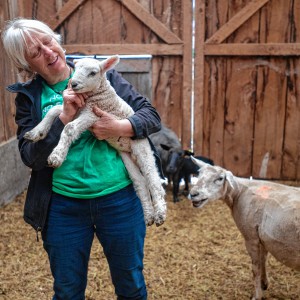 Valley Bounty: And on that farm she had a bit of everything: Little Brook Farm in Sunderland is a labor of love for farmer Kristen Whittle
Valley Bounty: And on that farm she had a bit of everything: Little Brook Farm in Sunderland is a labor of love for farmer Kristen Whittle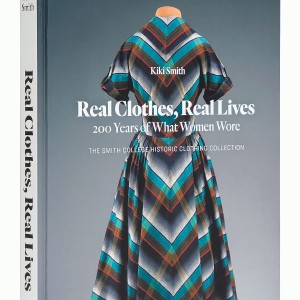 Women’s history told through clothing: Shelburne Falls Area Women’s Club to host ‘Real Clothes, Real Lives: 200 Years of What Women Wore’ author, April 9
Women’s history told through clothing: Shelburne Falls Area Women’s Club to host ‘Real Clothes, Real Lives: 200 Years of What Women Wore’ author, April 9
